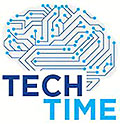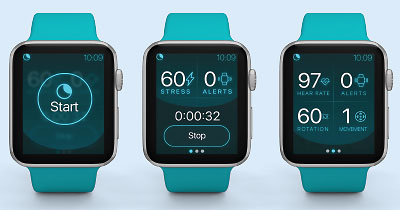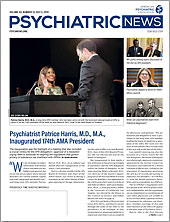In May the Food and Drug Administration (FDA) granted breakthrough therapy status to NightWare—a smartwatch-based therapeutic for trauma-related nightmares and nightmare disorder. The app monitors the heart rate and movement of people wearing the smartwatch as they sleep and rouses them with a mild vibration if a nightmare is detected. This vibration is not strong enough to wake users, according to NightWare Inc., makers of the smartwatch app.
Nightmare disorder, which is listed as a condition in DSM-5, is characterized by vivid and repeated nightmares that severely impact sleep quality. Though it can occur in anyone, nightmare disorder is commonly associated with posttraumatic stress disorder (PTSD); epidemiological studies have suggested 70% to 80% of people with PTSD experience recurrent nightmares.
“We don’t fully understand the function of dreams, but it’s been suggested that dreams help people depower the effects of trauma,” said Daniel Karlin, M.D., the chief medical officer at NightWare Inc. Karlin is an assistant professor of psychiatry at Tufts University. “In people with PTSD, however, the nightmares feel so real that they serve to reinforce past trauma, which exacerbates the disorder.
“You then reach this point where you experience unwanted flashbacks during the day and unwanted dreams at night, and there’s nowhere to escape,” Karlin continued. Nightmares contribute to the misuse of alcohol among people with PTSD and also contribute to suicidal ideation, he added.
For a long time, prazosin (a drug that treats blood pressure) was the frontline choice to treat nightmare disorder, but a study of over 300 veterans with PTSD published in
The New England Journal of Medicine (NEJM) in February 2018 found that this medication was not any more effective than a placebo drug (See
here.)
NightWare was initially conceived during a software hackathon sponsored by the Department of Veterans Affairs (VA). The mobile app (currently the software only works with Apple products though there are plans to expand compatibility) assesses data from a smartwatch’s biometric sensors and “learns” an individual’s sleeping patterns over a few days. After this learning period, the app will monitor sleep patterns and vibrate if it detects disturbed sleeping. The vibration shifts the person from his or her disturbed rapid eye movement (REM) sleep into a non-dream, deep sleep state. This process is also “learned”: If the vibration elicits no effect, it will try again with more intensity and if the vibration wakes the person, then the next attempt will be less intense.
As for users, all they must do is use their finger to press START on the NightWare app before they go to bed each night.
NightWare’s effectiveness was demonstrated in an open-label study of 20 veterans who used the device for one month. At study’s end, 18 of the 20 participants showed noticeable improvements (average improvements of 4.5 points in their sleep quality, as measured by the Pittsburgh Sleep Quality Index). These improvements were double what was reported by patients on prazosin in the NEJM study.
NightWare Inc. will soon begin testing the smartwatch app in two, large, randomized studies. The first is a proposed 240-person, placebo-controlled study to take place at the Minneapolis VA (using a sham, non-vibrating version of the app as the control), while the second will be a 400-person, virtual clinical trial in which anyone can ask to enroll online. As with the pilot, both randomized studies will last one month and measure sleep quality as the primary endpoint.
NightWare’s newly granted breakthrough designation will help speed the FDA review and clearance process, which will enable this device to reach the market quickly, if all goes as planned.
“We want to generate strong data so doctors will be confident that this device really works,” Karlin told Psychiatric News. He added that once the trials are completed, all the participants can continue to use the app in an open-label mode. This will provide long-term data on NightWare’s effectiveness and adherence rate, which can be easily monitored remotely. ■
“Trial of Prazosin for Post-Traumatic Stress Disorder in Military Veterans” is posted
here.


